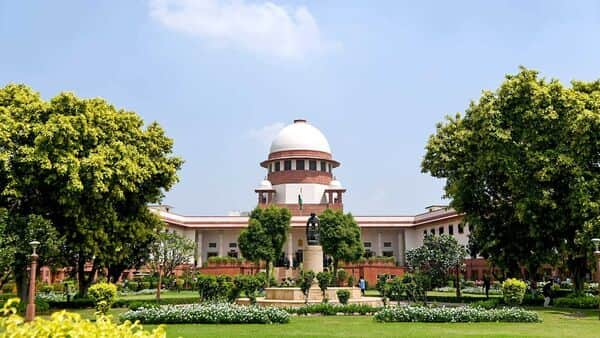Rule of law means that laws apply equally to all citizens and institutions, including the State. Rule of law requires an equal right to access to justice for the marginalised. The rule also mandates objective and fair treatment to all. Thirdly, rule of law is a check on arbitrary use of powers. It secures legitimate exercise of power for public good. (Para 2)
The licence fee payable by the wholesaler was raised from Rs.5,00,000/- (rupees five lakhs only) under the old policy to Rs.5,00,00,000/- (rupees five crores only), which is an increase of approximately 10,000%. (Para 6)
The wholesalers were entitled to a standard distribution fee at the rate of 12% of the landed price. The landed price or the ex-distillery price was the lowest price as declared by the manufacturer in any market in India. (Para 6)
The standard distribution fee at the rate of 12%, though higher than the fee under the old policy, was necessary to cover the higher level of investment required, setting up of quality checking system, etc. The fee of 12% had also subsumed several other charges payable under the old policy. (Para 6)
However, there is one clear ground or charge in the complaint filed under the PML Act, which is free from perceptible legal challenge and the facts as alleged are tentatively supported by material and evidence. This discussion is equally relevant for the charge-sheet filed by the CBI under the PoC Act and IPC. We would like to recapitulate the facts as alleged, which it is stated establish an offence under Section 3 of the PML Act and the PoC Act. These are:
In a period of about ten months, during which the new excise policy was in operation, the wholesale distributors had earned Rs. 581,00,00,000 (rupees five hundred eighty one crores only) as the fixed fee.
The one time licence fee collected from 14 wholesale distributors was about Rs.70,00,00,000 (rupees seventy crores only).
Under the old policy 5% commission was payable to the wholesale distributors/licensees.
The difference between the 12%; minus 5% of the wholesale profit margin plus Rs.70,00,00,000/-; it is submitted, would constitute proceeds of crime, an offence punishable under the PML Act. The proceeds of crime were acquired, used and were in possession of the wholesale distributors who have unlawfully benefitted from illegal gain at the expense of the government exchequer and the consumers/buyers. (Para 21)
The appellant – Manish Sisodia was aware that three liquor manufacturers have 85% share in the liquor market in Delhi. Out of them two manufacturers had 65% liquor share, while 14 small manufacturers had 20% market share. As per the term in the new excise policy – each manufacturer could appoint only one wholesale distributor, through whom alone the liquor would be sold. At the same time, the wholesale distributors could enter into distribution agreements with multiple manufacturers. This facilitated getting kickbacks or bribes from the wholesale distributors having substantial market share and turnover. (Para 24)
The licence fee payable by the wholesale distributor was a fixed amount of Rs.5,00,00,000/- (rupees five crores only). It was not dependant on the turnover. The new policy facilitated big wholesale distributors, whose outpour towards the licence fee was fixed. (Para 24)
The excess amount of 7% commission/fee earned by the wholesale distributors of Rs.338,00,00,000/- (rupees three hundred thirty eight crores only) constitute an offence as defined under Section 7 of the PoC Act, relating to a public servant being bribed. (As per the DoE, these are proceeds of crime). This amount was earned by the wholesale distributors in a span of ten months. This figure cannot be disputed or challenged. Thus, the new excise policy was meant to give windfall gains to select few wholesale distributors, who in turn had agreed to give kickbacks and bribes. (Para 24)
In view of the aforesaid discussion and for the reasons stated, we are not inclined to accept the prayer for grant of bail at this stage. (Para 25)
SUPREME COURT OF INDIA
2023 STPL(Web) 391 SC
[2023 INSC 956]
Manish Sisodia Vs. Central Bureau Of Investigation
Criminal Appeal No. of 2023(Arising Out Of Special Leave Petition (Criminal) No. 8167 of 2023) With Criminal Appeal No. Of 2023(Arising Out of Special Leave Petition (Criminal) No. 8188 of 2023)-Decided on 30-10-2023
https://stpllaw.in/wp-content/uploads/2023/10/2023-STPLWeb-391-SC.pdf







